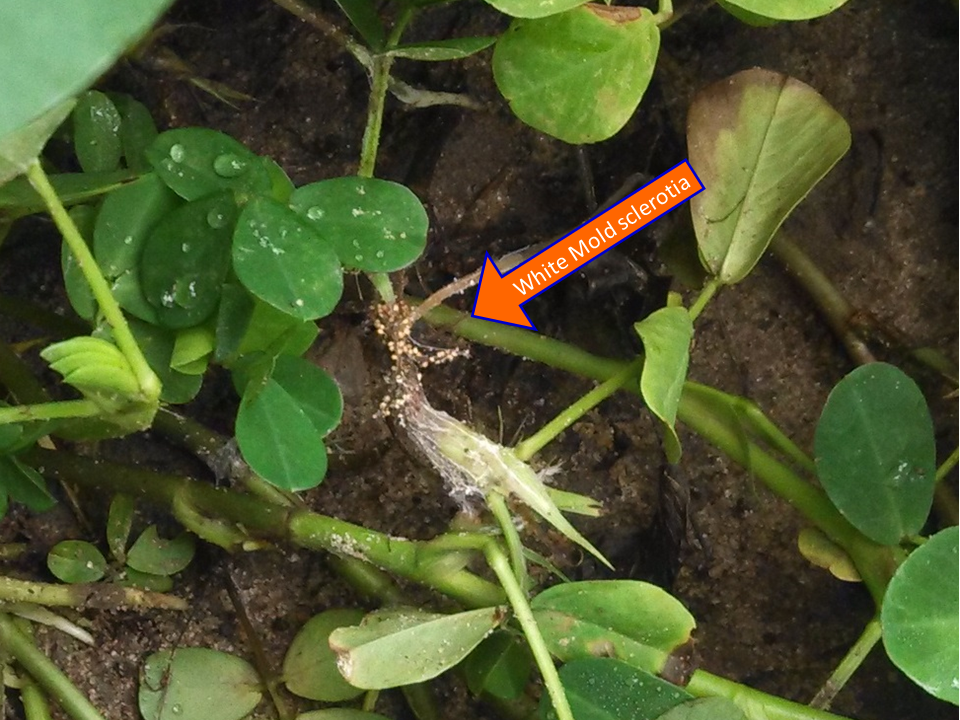There are confirmed hits of white mold in the Extension Peanut Fungicide trial here in Santa Rosa County, up to 3 hits per 25 foot of row. White mold is one of those diseases that can be field diagnosed with near 100% accuracy when the small BB-like, mustard seed sized, sclerotia of the fungal pathogen germinate and infect the plant.
No fungicide that is labeled for peanuts, no matter how effective, can completely eliminate white mold from a field. In fact, it has been estimated that an effective fungicide program is likely to control only about 70%. Good crop rotation and the use of more resistant varieties can minimize the impact of white mold infections.
The true measure of an effective fungicide program is its ability to keep individual “hits” of white mold from spreading and running down the row. No grower wants to see any white mold in a field; but some white mold is inevitable especially in wet years like this. Individual hits of white mold should be watched carefully to insure that they do not spread. I like to place an orange flag at several sites where I first find white mold hits and make a note of their diameter, this makes it easier to monitor their progression.
What can you do if you feel white mold is becoming a problem in a field?
Try to determine the cause of the problem. Were soilborne fungicide applications late due to the weather? Is the sprayer properly calibrated, and applying the right rate of fungicide? You may consider tightening the interval between fungicide applications. For example, if you have been on a 14 day schedule interval, perhaps you should shorten the interval to 10-12 days. Where white mold is a problem, you may consider increasing to the maximum rate allowed on the label.
For more information on peanut disease management, download the peanut disease control portion of the 2013 UGA Peanut Production Update: 2013 UGA Peanut Disease Update
Your Extension agents are out in the fields monitoring crops as the season progresses. If you would like help identifying white mold, or other peanut diseases, give your local County Extension agent a call.
- 54th Annual Santa Rosa County Farm Tour Goes Virtual - December 11, 2020
- Video Tour of the 2020 Santa Rosa County Peanut Variety Trial - October 9, 2020
- Giant Salvinia – A Highly Invasive Aquatic Plant You Don’t Want Growing in Your Pond - May 29, 2020

